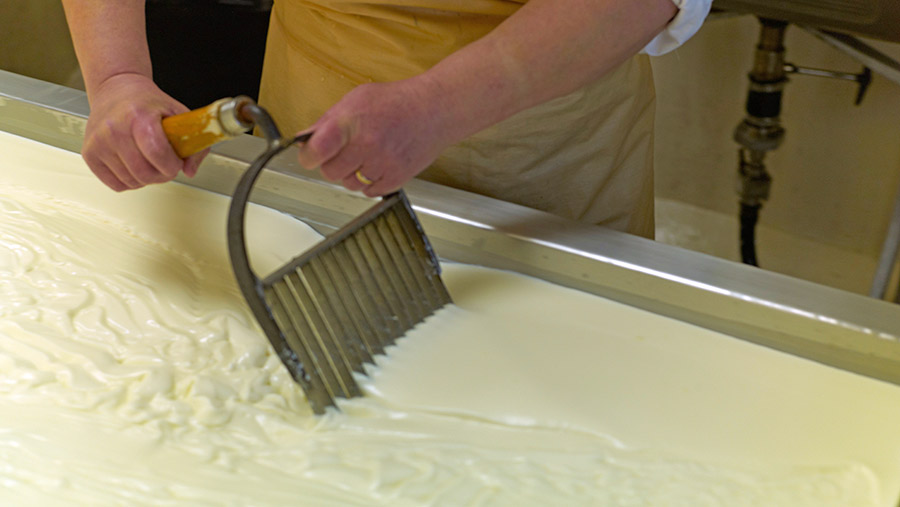How to get your bid in for £35m diversification grant scheme
 © Paul Glendell/Alamy Stock Photo
© Paul Glendell/Alamy Stock Photo Farmers have just three months to lodge their initial bids for funding under a new £35m rural grant programme.
The scheme, run by the Rural Development Programme for England (RDPE), aims to create diversifications that boost rural jobs, increase tourism and encourage business growth. The deadline for expressions of interest is 16 February 2020.
The RDPE Growth Programme grant scheme is part-funded by EU cash. But the government has dismissed concerns over funding after Brexit with a commitment to bankroll the scheme even in the event of a no-deal.
See also: £35m fund set to help English farms diversify
“The government has added that it may increase funding to £50m if enough high-quality proposals are put forward,” said James Dunn of consultant Adas.
The minimum grant has been dropped from £35,000 under previous rounds to £20,000, opening the door to applications for smaller business ventures.
Each project must meet the criteria within one of three categories (see box). The maximum grant is about £172,500 for most projects but there is a higher £750,000 ceiling for certain food processing projects.
Eligible projects
Grants are available to support ventures under three categories:
Food processing
This is for food and drink businesses that process agricultural or horticultural products and offers up to 40% of eligible costs for grants of less than £172,500.
Larger grants of up to £750,000 are available in this category but at a lower rate of 20% of the project’s eligible costs.
Funding can be used to construct or improve buildings and buy new equipment to process meat, milk, grain and root vegetables.
Business development
Open to small business and start-ups, including non-agricultural diversifications, and covering 40% of eligible costs. Funding can be used to construct or improve buildings and buy new equipment.
Rural tourism infrastructure
Open to a wide range of organisations. If the project is intended to make a profit, only small businesses and farmers who want to diversify are eligible. The grant can fund up to 40% of a commercial project but 100% for non-commercial ventures. Projects should encourage tourists to visit, stay longer and spend more money in rural areas.
However, Mr Dunn pointed out that the application process was competitive and covered a wide range of rural businesses.
“Because there could be applications submitted by larger companies and even local authorities, it is essential that farmer applications are of a high standard,” he said.
“The total pot sounds like a lot of money but the £750,000 maximum for food processing projects means funding could be used up quickly.”
The likelihood of strong competition for a limited pot means that in order to gain approval, expressions of interest must be well-structured and accompanied by a business plan that demonstrates how the venture will be profitable over the long term.
Tips to help your bid succeed
“It is essential to review the proposal carefully before it is submitted,” Mr Dunn said. “Only one submission is permitted per business so it must be right first time.
“Ask yourself: ‘Is it financially stable, does it meet the scheme’s criteria and is there a clear demand for such a business in the area?’.
“You must also demonstrate that you have enough money to carry out the work,” Mr Dunn warned.
He said the grant would be paid retrospectively, meaning it was vital to establish that there was sufficient funding and cashflow available until the money was paid.
The proposal must also meet the long-term goals for the local economy, provide extra jobs and show that the business will grow.
Mr Dunn suggested using professional help to check criteria had been met before lodging an expression of interest.
“Use a business consultant and review the proposal with help from the Local Enterprise Partnership. Any ventures must fit within the LEP strategy so it is worth engaging with them at an early stage,” he said.
The expression of interest should then be submitted to the Rural Payments Agency by midnight on 16 February 2020.
If the proposal is approved, a business plan, including full profit-and-loss balances and cashflow projections, should be drafted.
“Again this should be checked with professional help to ensure it is well-structured and factually robust,” Mr Dunn suggested.
Final decisions on funding are expected during Summer/Autumn 2020 and all works must be completed by 30 September 2021.
How to submit an expression of interest
1. Consult the relevant handbook for the category. All are on the gov.uk website
RDPE Business Development handbook
RDPE Rural Tourism Infrastructure handbook
2. Use the step-by-step RDPE guidelines to help fill out the application form
3. Send the completed form via email to:
It must be saved as a Microsoft Excel document, in the 1997-2003 .xls format.
For further help on the RDPE Growth Programme:
Rural Payments Agency
Helpline: 03000 200 301
Email: GPEnquiries@rpa.gov.uk
